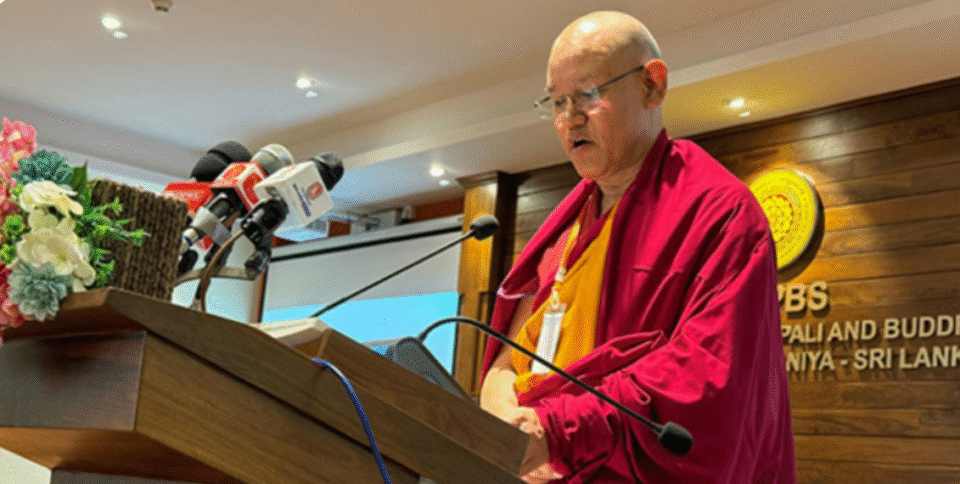Kelaniya, Sri Lanka – July 28: In a landmark moment for modern Buddhist philosophy, the Kelaniya Declaration was formally adopted at the close of the Scholastic Conference on Samsara in Buddhist Philosophy, hosted by the Postgraduate Institute of Buddhist and Pali Studies at the University of Kelaniya.
Held at the sacred site of Kelaniya, traditionally believed to have been visited by the Buddha himself, the conference gathered a diverse assembly of monastics, scholars, and spiritual leaders from around the world. Over several days, participants explored the philosophical, doctrinal, and socio-political dimensions of rebirth, karma, and spiritual identity in the modern world.
Reaffirming Rebirth, Rejecting External Interference
The Kelaniya Declaration firmly reaffirmed rebirth (punabbhava) as a core tenet of Buddhist philosophy, deeply rooted in canonical teachings and long upheld by diverse Buddhist traditions. It distinguished between rebirth and reincarnation, underscoring the non-self (anatta) nature of consciousness continuity — devoid of any transmigrating soul or fixed identity.
But the boldest statement came in the form of a defense of spiritual autonomy, responding to growing political interference in religious matters.
“The right to reincarnate lies solely with the individual consciousness that chooses to do so. No external authority — religious, political, or institutional — holds the legitimate power to determine, approve, or deny the reincarnation of any being,” the declaration stated.
This was widely interpreted as a direct rebuttal to state interference in identifying tulkus (reincarnated masters), particularly in Tibetan Buddhist contexts where geopolitical tensions have influenced recognition processes.
Bodhisattvas and Emptiness Reframed
The declaration further clarified the role of Bodhisattvas — enlightened beings who voluntarily return to samsara out of compassion rather than karmic compulsion.
Their rebirth, the statement said, stems not from ignorance or craving but from wisdom and altruistic intent — a reaffirmation of their place as exemplars of the Mahayana ideal.
On the concept of Sunyata (emptiness), the declaration offered a nuanced view: while the realization of emptiness dismantles static notions of self and identity, it does not negate karmic causality or the compassionate action of awakened beings.
Participants also urged for greater care in translating key terms like rebirth, reincarnation, and rebecoming, noting the risk of confusion when these concepts are filtered through Western or rigid ideological lenses.
A Turning Point in Contemporary Buddhist Thought
Signed by representatives from the Foundation for Buddhist Brotherhood, the International Buddhist Confederation, and the Buddhist and Pali University of Sri Lanka, the Kelaniya Declaration is being seen as a milestone in contemporary Buddhist discourse.
It calls for a Buddhism that is faithful to ancient wisdom but alert to the challenges of modernity — especially the risks of political appropriation of spiritual traditions.
“Liberation must remain a path of free will and wisdom,” the declaration concluded, “not one dictated by external authority or ideological control.”

